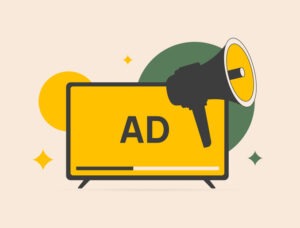The Most Important Thing You Can Do Online Is Not an Ad or an Algorithm—It’s That Old-Fashioned Website.
By now it seems a bit old-fashioned, but the most important thing you can do to build a strong online campaign is to build a basic political campaign website that is optimized for mobile, and update it regularly with relevant information.
When we look at the analytics of the sites we host for our campaigns at Storefront Political Media, often the best results come from “organic” traffic: people who navigate directly to the site or find it via unpaid search. It makes sense that this audience is much more likely to donate, volunteer, sign a petition or join an email list.
Your website is also almost always your “landing page,” and if you are using a digital and media program strategically, you are most likely trying to convert voters into volunteers or donors.
You might spend thousands or tens of thousands of dollars advertising to generate these visits, so make sure you also spend time to have a website that will encourage them to convert.
You will hear consultants use jargon like “inbound marketing.” That simply means voters come to you because you are offering them useful information or experiences—as opposed to “outbound marketing,” also known as traditional advertising.
Inbound nearly always beats outbound—make sure your campaign is paying attention to the basics, like having a functional web page.
Studies show that when voters search online for information about a candidate, the higher your rank on a page of results greatly influences the likelihood that they will vote for you.
The Research Shows that SEO Works for Political Campaigns.
Recent research demonstrates that, “On all measures, opinions shifted in the direction of the candidate who was favored in the [search] rankings. Trust, liking and voting preferences all shifted predictably.” To make sure voters find you, use what’s called Search Engine Optimization (SEO), which usually means posting fresh, unique and relevant content on your website frequently.
Did your campaign send out a press release? Put it on your website. Go to a parade? Post some pictures with interesting captions. Issue a policy paper? Put it on the site with a compelling headline. Are you passing out information on how to register to vote? You got it—get it on the website in a way that is easily searchable (as text, not just images).
Campaigns can be so focused on the latest trick, tip or tool that they forget the fundamentals. And this is fundamental to a strong online campaign: keep your website fresh and informative so voters can find you.
We hope you’re starting to sense a pattern here: focus on the proven basics that cost very little or only cost your time before you focus on activities that are complicated and costly.
PRO TIP: Since we write e-books, we read them too. And one consultant also working to democratize campaigning is Joe Fuld. Check out his great blog on SEO here.
For more campaign tips, check out 12 Must-Know Facts About Digital Media, a new e-book book by SpeakEasy Political founders Eric Jaye and Danielle Winterhalter.





